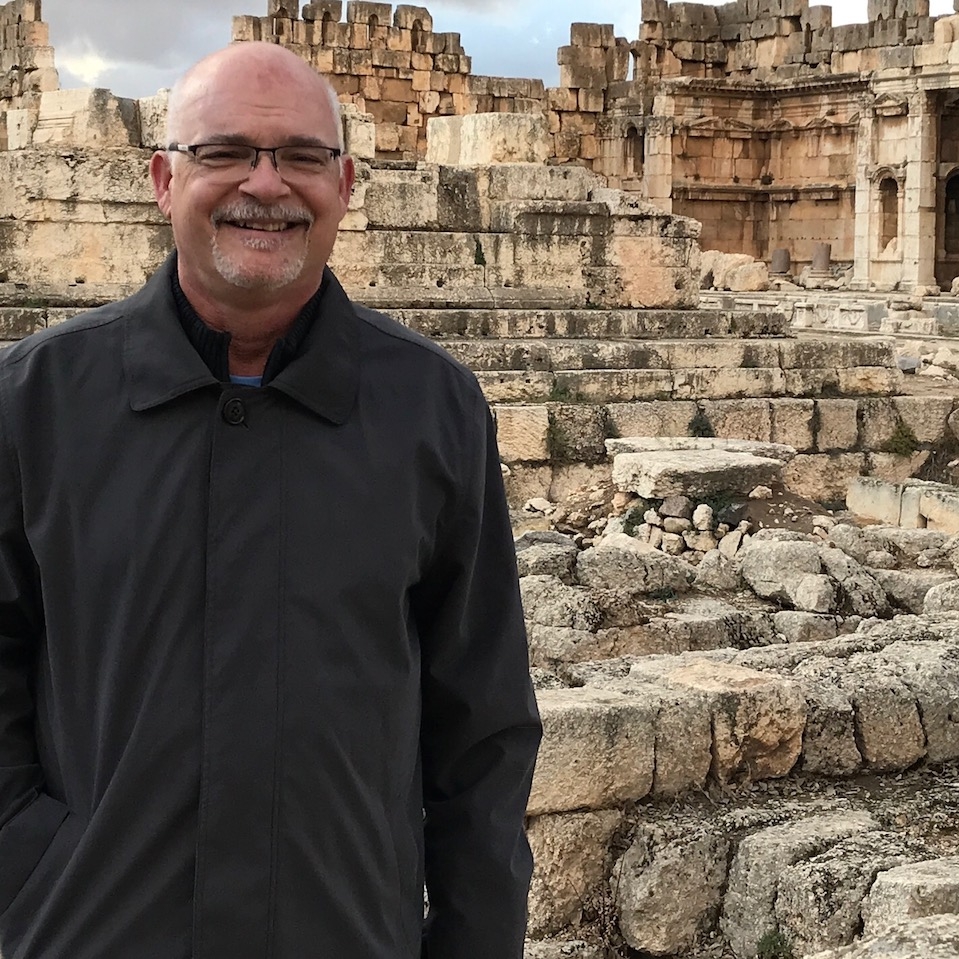Lebanon/Syria Day 11: Seeing the Future and the Past: A Trip to Anjar and Baalbek
Marshall Zieman, for the team
Marshall goes back in time…
With our hearts and minds crammed with information after a full week of hearing from Syrian pastors, today we again ventured across the Bekaa Valley, only a few minutes away from the Syrian border. The purpose of today’s trip was to visit another school for refugee children from Syria and also visit the ancient city of Baalbek, one of Lebanon’s premier attractions.
Located in the town of Anjar, this school is the sixth school for refugee children opened by the Synod of Syria-Lebanon. This school is a partnership with the local Baptist Church nearby. The current school is housed on a floor of an old office building, which has been divided up into four classrooms of about twenty-five kids each. With a current enrollment of 214 students, the school runs a morning 9-12 shift and then more students come for the afternoon shift. The school has vans that pick up the children from nearby refugee camps. Even with a space heater, the classrooms are still cold, and the kids all wear their coats during school. There is construction going on there, which will bring a new building for the school this summer.
Crammed into a small office, the school’s director, Samar, explained the schedule and curriculum to us. She shared with us her passion for seeing God’s hand in using the war to bring these children to this school, where these Muslim children are taught by loving Christian teachers. “These kids came from some of the worst places in Syria. They were from tribal areas, Bedouin areas. We couldn't go to them, so God brought them to us so we can teach them that there is a God who loves them.” The kids learn Arabic, math, science, and English and are also taught Bible verses and Bible songs. We were serenaded to a rousing chorus of “Father Abraham” and other songs, all expressed with great gusto. As Samar explained to us, “We alone cannot do much, and you alone cannot do much, but with Christ in us we can do great things together. May God unveil our vision to see our common mission.”
As the afternoon kids were beginning to arrive, we said our goodbyes and headed towards the ancient ruins of Baalbek.
Baalbek has been inhabited since the time of the Phoenicians, in 3000 BC. What gave Baalbek its fame, though, was the succession of Roman emperors who built a massive temple complex. There are temples to Jupiter, Bacchus, and Venus. There are stone courtyards in all shapes and sizes. Over time, churches and mosques were also built here. It’s one thing to read about Baalbek, but it’s an entirely different thing to visit in person. It’s easy to feel small among such giant structures. We took a lot of pictures on a cold, cloudy day, but none of our pictures can do it justice. It's just that massive.
And yet, none of these civilizations lasted. The Phoenicians gave way to Greeks and Romans, then to a series of Muslim caliphates, to Mongols, to Ottomans, to French and British Mandates, and now to the current presence of Hezbollah and Iranian influence. Indeed, in nearby modern Baalbek we had lunch at a restaurant right alongside the huge, beautiful blue and gold mosque which was funded from Iran. There are many earthly kingdoms.
We remember Jesus in the wilderness being tempted by Satan, who offered him all the kingdoms of the world if Jesus would just bow down to him. Jesus resisted that temptation. Jesus later would teach that his kingdom was not of this world, and that his kingdom would never end.
We just finished Advent, where we sang about our Messiah as King of Kings and Lord of Lords.
He is Lord in times of war and times of peace. He is Lord over all the earthly kingdoms, for all time. He is the Lord of your life, and the Lord of these refugee children who were belting out “Father Abraham” with their hearts, minds, and voices today.
Rev. Dr. Marshall Zieman
Presbyterian Church of the Cross, Omaha, Nebraska




